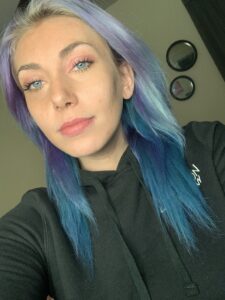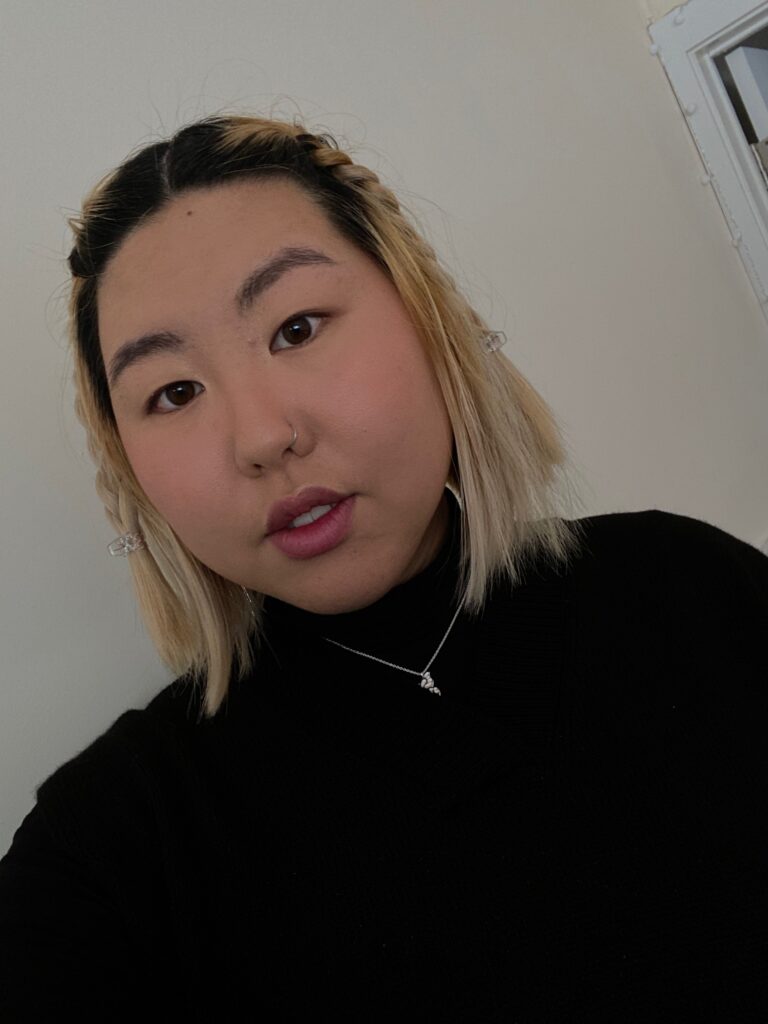Absolutely dying to dye her hair


As I sat in the brightly lit room waiting for my son’s dentist to come in, I felt a twinge of self-consciousness as I looked around at the blonde mom across the room and the brunette helping Cire brush his teeth.
I uncomfortably played with the string on my sweatpants, knowing they were silently judging my flaming red hair with Ugg boots in a matching hue.
There I was, 26 and a few months from my second college degree and these “normal” women made me feel like an embarrassed middle schooler smiling behind freshly applied braces.
Just because I express my personality on the outside as well as radiating from within, I was made to feel like I didn’t belong.
Or was I?
I have been dying my hair since I was 12. I began first by exhausting the shades of blonde, brown, burgundy and black until I picked up a bottle of deep purple. I tried for a whole summer to achieve the plum hue advertised on the package, but my hair wouldn’t take.
That October, for Breast Cancer Month, I asked the hair-dresser to make the tips of my then dirty blonde hair hot pink.
From there I was hooked.
In the past 14 years, I have dyed my hair every color of the rainbow, and frequently mixed more than one together, even rocking a “split dye” of mint green and fuchsia this summer.
Despite the feeling of freedom and power I get when I gaze in the mirror after a fresh application, and the compliments I receive out in public, I still feel out of place walking into my internship.
I dye my hair when life becomes a little too mundane for me. When the person in the mirror becomes old news, I need a change. At a younger age, I sometimes satisfied this itch with tattoos or piercings, but I found nothing made me feel more brand new than a new color. As a natural brunette I feel lost in sea of sameness without my signature shades.
In a 2015 Teen Vogue article, psychologist Vivian Diller suggests that hair dyeing can become addicting, like exercising or tanning. Psychologist Heather Silvestri agrees, claiming that addiction comes from the brain’s desire for a reward system.
Second-year medical school student Lacie Phibbs, a childhood friend of mine, disagrees.
“I think it gives me a sense of something I can control. There are a lot of things that every student studying to be a doctor is required to complete and I feel like this is my way of standing out and doing something for myself,” said Phibbs, who attends Rocky Vista University in Colorado.
Phibbs does agree with me that the world returns mixed reviews on her Lavender locks.
“There are very polarizing opinions. Some people love it while some stare and are shocked to learn that I am becoming a doctor,” Phibbs said.
Whether in the medical field like Phibbs or communication like me, the reactions come from everywhere.
Years ago, when applying for waitressing jobs, my mother told me she would never hire me with me “wild hair.” I laughed at her when I landed a job that day. It wasn’t until four years later at an interview for a serving position at Texas Roadhouse when I was told “we love you, but not how you look,” I began to question myself.
It was recently, as graduation draws near and the job search looms, that I have begun to question the ever-changing security blanket draped over my head.
Can I be taken seriously for the intelligent, hard-worker I am when my hair is a distraction?
Would I even be who I am if I had brown hair?








